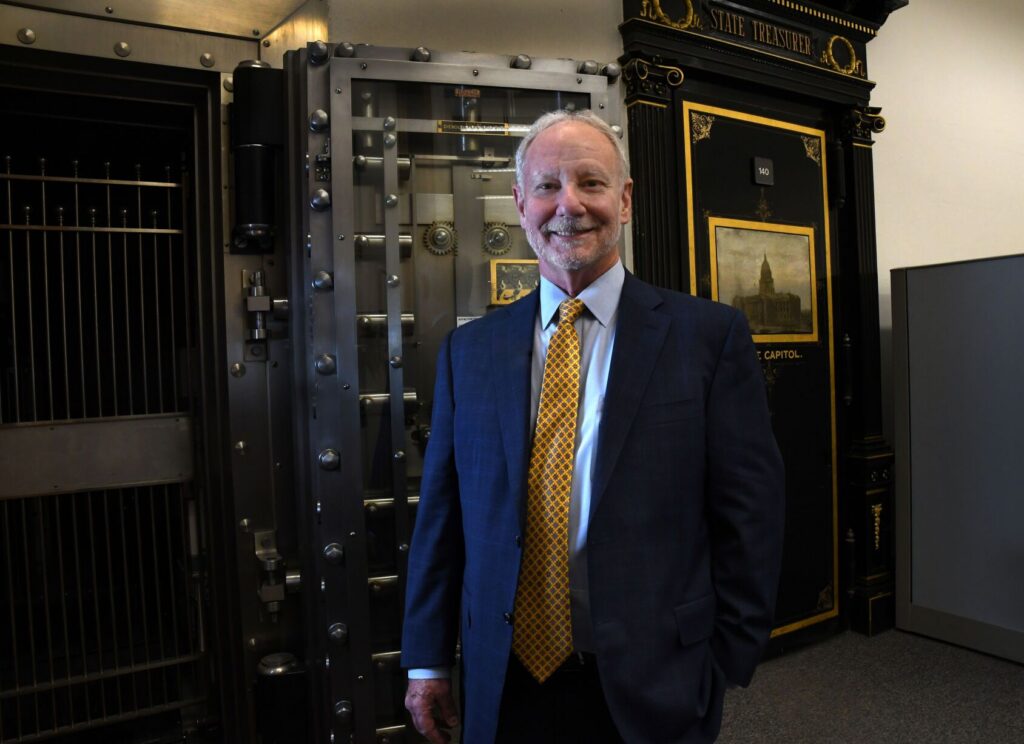Sponsors pull bill on racial bias in jury selection after opposition from DAs

The Democratic sponsors of a bill to combat implicit racial bias in jury selection have opted against moving forward with their proposal, asking instead that the Colorado Supreme Court exercise its rulemaking power before the next legislative session.
Sens. Pete Lee, D-Colorado Springs, and Julie Gonzales, D-Denver, had initially sought to address the concerns of the state’s district attorneys, all 22 of whom opposed their Senate Bill 128. The measure would have altered the protocol for allowing attorneys to excuse, or strike, potential jurors in a criminal trial. Most controversially, SB 128 listed several reasons associated with race – but are not explicitly racial – that would be presumably invalid justifications for striking a juror.
However, two weeks after the bill’s initial hearing, the potential for compromise appeared to have evaporated.
“All opposition witnesses did testify that implicit racial bias in our jury selection process is a problem that should be addressed,” said Gonzales. “We asked the opposition for written comments for solutions that would be constructive on how to make this policy workable, and didn’t receive any written feedback.”
A spokesperson for the Colorado District Attorneys’ Council did not deny her statements.
“Several district attorneys gave suggestions in person at the hearing on behalf of CDAC. The single most consistent suggestion was to send it back to the (Supreme Court’s) rules committee as that entity is the best suited to address the issue,” said Elizabeth Schrack, communications manager for CDAC.
Although the U.S. Supreme Court found intentional racial discrimination in jury selection to be unconstitutional in its 1986 Batson v. Kentucky decision, lawyers who seek to strike a person from the jury pool need only provide “race-neutral” reasons for their actions if the opposing party raises a “Batson challenge.”
Recognizing that some attorneys can use jurors’ body language, distrust of law enforcement or belief in racial profiling as justifications for dismissal -factors that may well correlate with a person’s race – the Washington Supreme Court in 2018 enacted a rule change to address implicit bias. California followed suit and passed a similar change legislatively.
Washington’s General Rule 37 now directs judges to evaluate, among other things, whether a reason for a juror dismissal “might be disproportionately associated with a race or ethnicity.” Although the Colorado Supreme Court’s Advisory Committee on the Rules of Criminal Procedure recommended by majority vote that Colorado adopt a Washington-style rule, the justices rejected it last year due to the absence of consensus.
Gonzales said that SB 128 was a response to the Supreme Court’s decision, and she wanted to give the judicial branch another chance to enact change. However, she added that her patience with the status quo was not limitless.
“The best pathway forward is for us to attempt to return to the Colorado Supreme Court and its rules committee in order to address this via rule, but with the intention that we’re hopeful the rules committee does address this and make progress,” she said. “If not, we will come back in the next legislative year, 2023, and proceed again.”
A spokesperson for the judicial branch declined to comment.
Lee indicated that the bill’s sponsors would also send a letter to the criminal rules committee with a summary of concerns.
“Batson is not working as it was intended to do. It’s not working, as people of color are being excluded from juries far too often,” he said.
Criminal defense attorneys had spoken in support of SB 128, arguing that asking judges to rule on intentional racial discrimination was a tougher proposition than simply evaluating whether an “objective observer” could view race as a factor in a juror dismissal, as the bill proposed.
“Unrepresentative juries occur because communities of color are often unfairly excluded or marginalized because of their race,” testified public defender Joyce Akhahenda. “It reinforces that this is not ‘our’ system. How long are people of color supposed to wait to have their lived experiences accepted as part of the community?”
District attorneys countered that the bill would create unfair juries for victims if people could be excused for expressing their support for police, but not for their distrust of law enforcement.
Tristan Gorman, the policy director for the Colorado Criminal Defense Bar, criticized the lockstep opposition from prosecutors and hoped the Supreme Court would allow for a hearing process with public testimony on any rule change.
Opponents “offered no concrete solutions to the problem, other than suggesting training on implicit bias. While training is important, we believe this is not enough given the gravity of the situation,” Gorman said.
Last month, in a decision involving a Batson challenge, the Supreme Court found a Denver prosecutor failed to provide nonracial reasons for striking a Hispanic juror from a Hispanic defendant’s trial. The court ordered a new trial for the defendant, but such reversals are rare.
In a more common scenario, the state Court of Appeals recently declined to find a Batson violation in an Arapahoe County murder trial, despite the fact that a Hispanic woman gave similar responses to questions as white jurors. The white jurors ended up serving, while the prosecution dismissed the woman.














